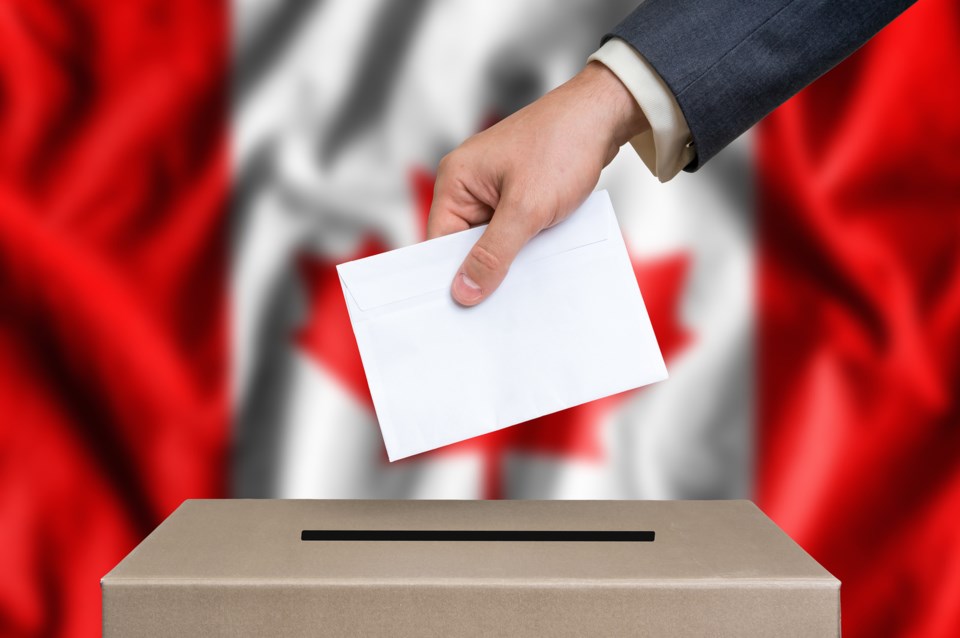EAST CENTRAL — The federal election has officially begun.
Canadians will go to the polls on Monday, Oct. 21.
For Humboldt, which is covered by Carlton Trail — Eagle Creek, the candidates so far are:
- Kelly Block, Conservative
- Dean Gibson, Green
- Rebecca Malo, Liberal
- Cody Payant, People’s Party
For Tisdale, Melfort and Nipawin, which are covered by the Prince Albert riding, the candidates so far are:
- Kelly Day, People’s Party
- Miranda Friske, Green
- Estelle Hjertaas, Liberal
- Randy Hoback, Conservative
For Lanigan and Watrous, which are covered by Moose Jaw — Lake Centre — Lanigan, the candidates so far are:
- Chey Craik, People’s Party
- Tom Lukiwski, Conservative
- Cecilia Melanson, Liberal
- Talon Regent, NDP
- Gillian Walker, Green
For Watson and Porcupine Plain, which is covered by Yorkton — Melville, the candidates so far are:
- Ryan Schultz, People’s Party
- Cathay Wagantall, Conservative
- Stacey Wiebe, Green
Campaign launches
The following are reports from the Canadian Press.
Liberal
Justin Trudeau says Canadians get to vote for the kind of Canada they want to live in next month — by giving his party another term, or taking a step back with the Conservatives.
After emerging from Rideau Hall, the Liberal leader spoke about how poverty rates have dropped and job creation is on the rise and attributes both to his party's policies, including the Canada Child Benefit.
He says politics is, at the end of the day, about people, and voters deserve a real plan for their future.
in taking questions, the SNC-Lavalin affair took top billing. Asked what his government is hiding, Trudeau says his office gave the largest waiver of cabinet confidences in Canadian history but added nothing more.
Conservative
Conservative Leader Andrew Scheer is taking aim at Justin Trudeau over the SNC-Lavalin affair ahead of the prime minister's visit to Rideau Hall to officially launch the federal election campaign.
Scheer is calling Trudeau a "liar," arguing the Liberal leader has lost the moral authority to govern and saying his goal for the next five weeks is to convince Canadians of that.
Much of his attack arises from a report in the Globe and Mail that cabinet confidentiality is preventing people from speaking to the RCMP as the force considers a possible investigation into obstruction of justice.
With the Conservative campaign plane behind him, Scheer also says he plans to spend the next five weeks or so talking to Canadians about the Tories' platform
NDP
Jagmeet Singh says the election comes down to a clear question for voters: Who can you count on?
The NDP leader believes the answer is him, telling supporters he plans to talks about providing services like pharmacare and dental care, vision care and mental health services, but only by taking on "lobbyists" and "corporate interests."
Singh says Liberal Leader Justin Trudeau and Conservative Leader Andrew Scheer will say one thing on the campaign trail, but then do something else behind closed doors once in office.
The bulk of the NDP platform has been out for months, including putting a tax on the super wealthy to pay for some of the party's promises.
Green
Green party Leader Elizabeth May says the Oct. 21 vote is the most important election in Canadian history.
Speaking to a packed room in Victoria, where many gathered very early in the morning on the West Coast, May says her party will talk about the scope of the climate emergency not to scare voters, but to inform them.
Her party is hoping to capitalize on interest in tackling climate change, as well as a growing number of Green politicians elected in recent provincial votes.
May says her party is also going to talk about free tuition for post-secondary students, child care and pharmacare, among other issues, during the campaign.
People's Party
Maxime Bernier is styling his upstart People's Party of Canada as espousing principles-based, smart populism that appeals to intelligence, not emotion.
Bernier tells a room full of supporters how he would cut foreign aid, among other spending changes, to balance the budget within two years, if elected to govern.
Polls suggest that isn't likely, though Bernier says the party will surprise people on Oct. 21.
Bernier says he has a tax-reform package that will help Canadians save $35 billion, plans to reduce immigration levels, and will scrap the supply-management system in Canada's dairy sector as part of a platform very different from that of any other party.



